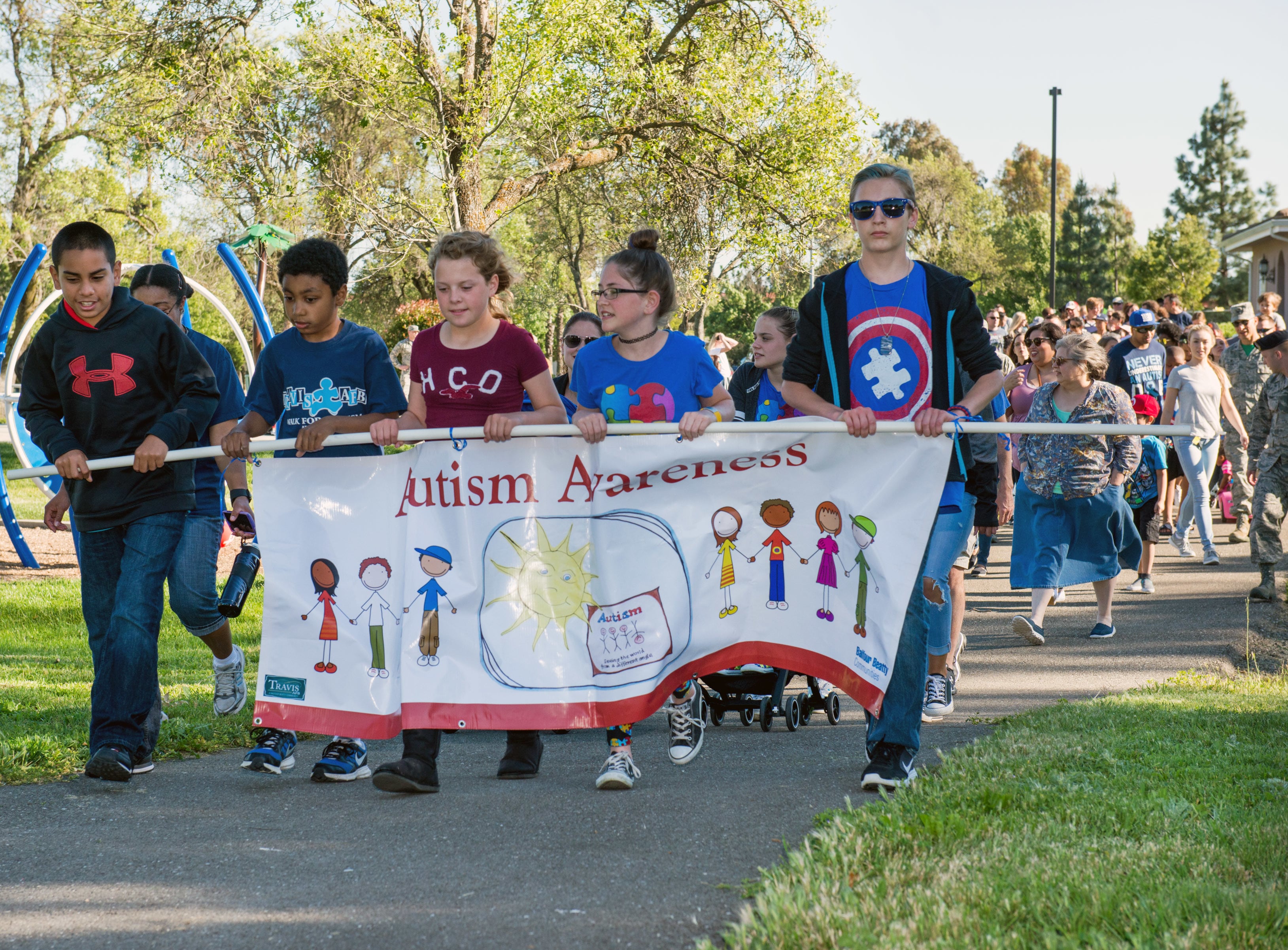Military families with a member who has autism will see changes over the next nine months in the Tricare program that covers their medical services.
Among the biggest changes: a care coordinator who will help families navigate the system and connect to needed resources.
The Tricare Comprehensive Autism Care Demonstration program will expand to provide more support to meet the families’ needs, according to an announcement March 30 by the Defense Health Agency, three days before World Autism Awareness Day on April 2. There are nearly 16,000 military children diagnosed with autism involved in that program.
The demonstration project will continue to cover applied behavior analysis therapy, or ABA, services — which are available for all Tricare-eligible beneficiaries with autism spectrum disorder diagnosed by an approved provider. And Tricare will continue to cover telehealth services for ABA parental guidance and training beyond the pandemic, when the telehealth coverage began, according to the announcement. ABA therapy is a time-consuming, intensive treatment that encourages positive behaviors and discourages negative behaviors to improve a variety of skills.
The autism care demonstration program started July 25, 2014 and has mostly focused on ABA services. The DoD changes will expand and combine all available services into one comprehensive care plan, officials said. The demonstration program is scheduled to end Dec. 31, 2023.
“We remain committed to addressing the needs of those beneficiaries diagnosed with [autism spectrum disorder] and their families,” said Dr. Krystyna Bienia, clinical psychologist and senior policy analyst at the Defense Health Agency, in the announcement. “There isn’t a ‘one size fits all’ approach when it comes to ASD care. We want our beneficiaries to have options, and these improvements should help connect families with the right services at the right time.”
Starting May 1, Tricare will no longer require a periodic re-diagnosis to get continued care. Other changes are expected to roll out over the next nine months, and be in place by Jan. 1, 2022, officials said.
Some advocates were concerned that DoD would cut back on the ABA therapy coverage with their revisions, following DoD’s reports to Congress about the outcomes of the program. In their 2020 annual report to Congress DoD stated their findings “demonstrate that the current format of the [autism demonstration project], and the delivery of ABA services, is not working for most Tricare beneficiaries” in the project.
“It is imperative that [Defense Health Agency] take a deeper look into why Tricare beneficiaries are not seeing more improvement over time,” the DoD report stated.
A recent report was critical of DoD’s interpretation of the data surrounding the measurement of children’s progress under ABA.
It’s not clear whether there’s been a change in DoD’s position, but they have made clear they are continuing the ABA therapy coverage, and expanding services beyond ABA.
Meanwhile, one of the new requirements is more frequent measurements of children’s progress under ABA.
Among the changes:
*For those who enter the autism care demonstration program on or after Oct. 1, Tricare will assign an autism services navigator to work with the family to develop a comprehensive care plan and to coordinate care. The navigator can also connect the family to additional autism resources.
*Telehealth benefits will continue. Parents will be able to get parental guidance and trainings through telehealth even beyond the national emergency due to the pandemic, when Tricare began covering these services through telehealth.
*The provider will be allowed to bill Tricare for group services, if they are clinically appropriate.
*Parents of children with autism will have greater involvement in the development of the child’s care plan.
*Tricare will no longer require a periodic re-diagnosis to get continued care. That means, in most cases, families aren’t required to follow up with a specialist after the initial Tricare-approved diagnosing provider determines a diagnosis of autism spectrum disorder. Tricare recommends additional appointments with the specialist, however, to help ensure families consider all the clinical and non-clinical options.
*More frequent outcome measures will be required — every year instead of every two years— but families won’t have to go back to a specialist for these evaluations. The new one-year evaluation cycle takes effect July 1.
Families will still need a referral and pre-authorization from a Tricare-authorized provider — a diagnosing provider and ABA provider —to receive the services. The ABA provider must conduct an ABA assessment and develop an individual ABA treatment plan. Previously accessible case management services will remain available.
Military special needs families “are still wading through the details of the changes,” said Michelle Norman, executive director and founder at Partners in Promise. While some changes are positive, such as the autism services navigator employed by Tricare to help families, there are some concerns about data collection, and some restrictions on ABA in school and in the community. “There are definitely more requirements that add more to the plates of these families and it is not clear the requirements are ‘helping’ them,” she said.
The changes are a result of a review conducted by DoD officials, who in their most recent report to Congress, stated they intended to “evolve the program to a more beneficiary- and family-centric model.” Officials stated they aim to improve the quality of, value, and access to care and services for beneficiaries diagnosed with autism spectrum disorder and their families.
According to that DoD report, costs for the ABA treatment in the demonstration project were $370 million in fiscal 2019. The average cost for the time-consuming, intensive treatment was $23,253 in 2019. Costs vary depending on the frequency of treatment and a variety of other factors.
Karen has covered military families, quality of life and consumer issues for Military Times for more than 30 years, and is co-author of a chapter on media coverage of military families in the book "A Battle Plan for Supporting Military Families." She previously worked for newspapers in Guam, Norfolk, Jacksonville, Fla., and Athens, Ga.





